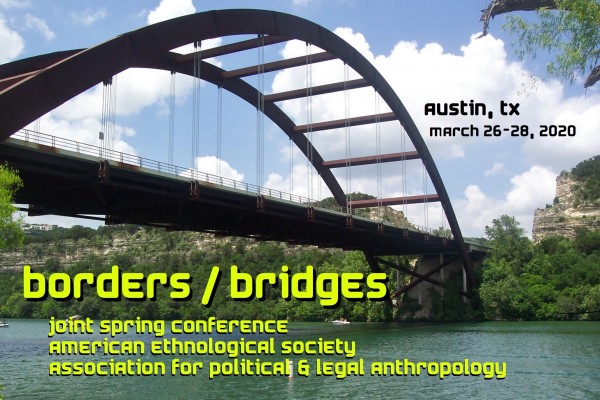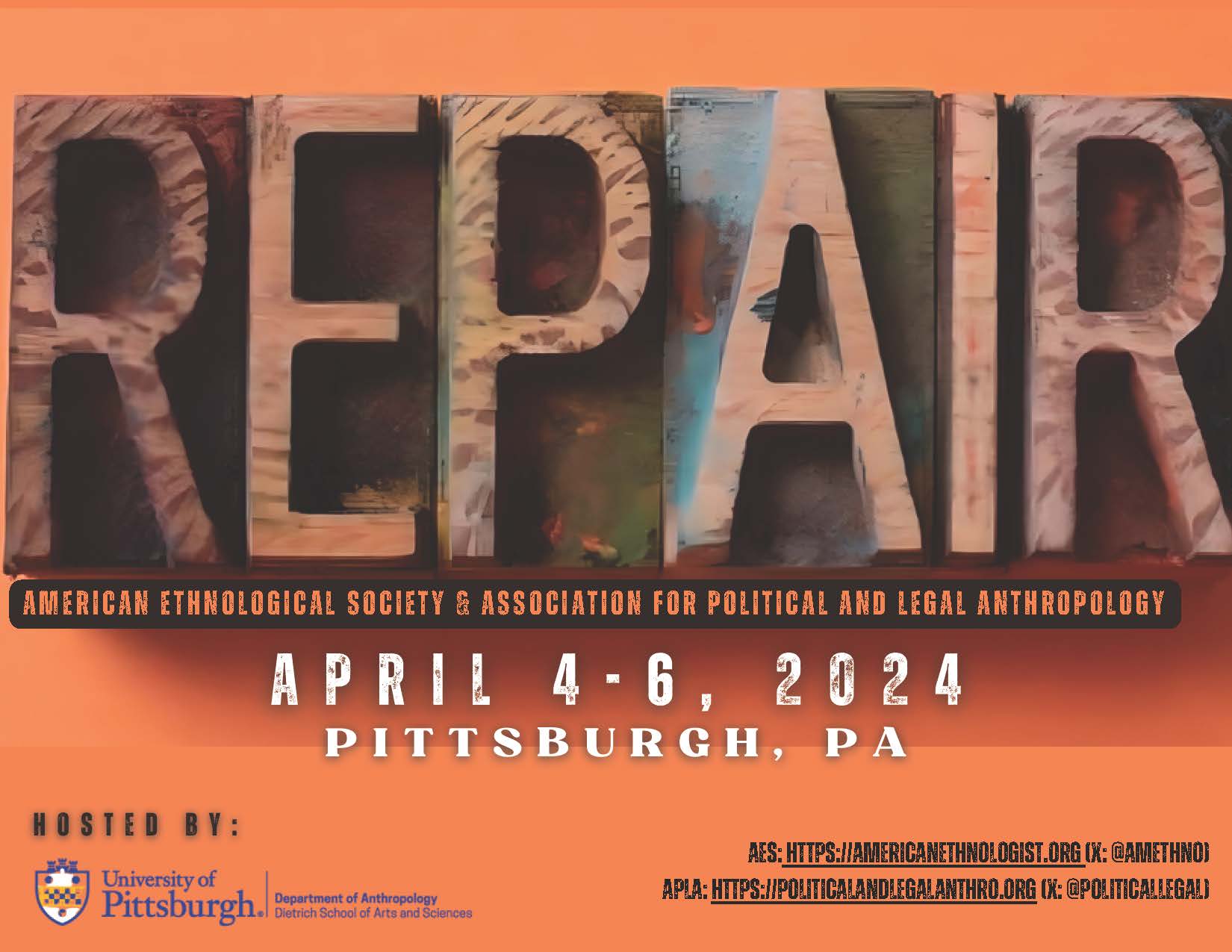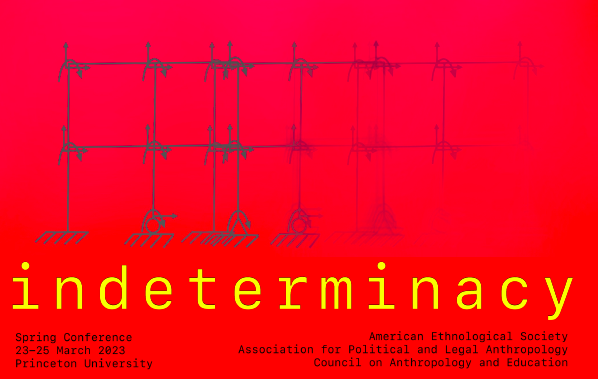Borders/Bridges
In the current historical moment, many countries are experiencing resurgent racism, nativism, and authoritarian politics. As global economic instability and demographic changes transform entire nation-states, demagogues are testing the limits of political and legal systems, inflaming followers by scapegoating ethnic and religious minorities, immigrants, and refugees for social problems. In the United States, these trends take a variety of shapes, including efforts to politically polarize the citizenry, rising white nationalism, draconian immigration policies, attempts to restrict the movement of those seeking asylum, and proposals to extend a separation wall across the entire US-Mexico border. Such phenomena are reminiscent of the early 20th century, when prospective immigrants from East Asia and Eastern Europe were practically excluded from the United States. Despite these developments, many groups and individuals are attempting to heal the wounds of xenophobia and fear by building bridges of empathy, compassion, and cross-cultural understanding. They are also crafting new legal responses, engaging in political activism, and creatively reimagining citizenship in these challenging contexts.
How should anthropologists respond, at a time when so many political figures around the world prefer to build barriers rather than bridges, to sow hostility rather than humanity? For our Spring 2020 meeting, we invite anthropologists and other scholars and activists to join the American Ethnological Society (AES) and the Association for Political and Legal Anthropology (APLA) to consider the cultural, historical, legal and political implications of these troubling transformations. In a national election year, Austin–the capital city of a border state undergoing tectonic political shifts–is a particularly appropriate site to reflect upon and challenge these global trends.
This conference is co-sponsored by the University of Texas at Austin’s Department of Anthropology and College of Liberal Arts. It will take place at the Thompson Conference Center, on the UT Austin campus.
To view the conference program, click HERE.
Conference Workshops
The first day of our conference will include three exciting workshops focused on publishing, mentoring, and using social media. Each workshop has room for only 25 participants, so sign up quickly to reserve a spot!
All workshops are scheduled for the afternoon of Thursday, March 26, 2020. Register for one, two, or all three workshops by clicking HERE and selecting the “Add Workshops” link! Please note that there is a non-refundable registration fee of $10 per workshop.
Workshop 1 (Thursday, March 26–12:30-2:00 pm)
“How to Get Your Papers Published in American Ethnologist and PoLAR: Perspectives from Two Journal Editors”
This workshop, organized by editors from two of the AAA’s leading anthropology journals, is designed to help graduate students and junior scholars prepare their work for peer-reviewed publications. Join Stacy Pigg (of AES’s American Ethnologist) and Jessica Greenberg (of APLA’s PoLAR) to learn about publishing do’s and don’ts, and whip your papers into shape!
Workshop 2 (Thursday, March 26–2:00-3:30 pm)
“Speed Mentoring: Give Your CV a Makeover (with Help from Experienced Academics)”
Imagine a speed dating session for your curriculum vitae. Welcome to speed mentoring–your opportunity to have an experienced group of university-based anthropologists give you their suggestions for tweaking (or maybe overhauling) your CV. Get one-on-one advice from Carolyn Rouse (Princeton U), Erik Harms (Yale U), Erica Bornstein (U Wisconsin-Milwaukee), Katherine McCaffrey (Montclair State U), Roberto González (San Jose State U), Jason Cons (U Texas-Austin) and others! After you register, please email your CV to 2020aesconference@gmail.com no later than March 19, 2020
Workshop 3 (Thursday, March 26–3:30-5:00 pm)
“#AnthroTwitter–How to Use Social Media and Other Platforms to Get Your Ideas Out (and Change the World)”
How can Twitter, Facebook, and other social media platforms be used to share anthropological knowledge, communicate ethnographic insights, provoke political action, and promote social change? This workshop, moderated by Chelsey Carter (Washington U-St. Louis) will give you the chance to join a dynamic group of anthropologists who have used social media to push the boundaries of anthropology far beyond the academy. Confirmed participants include Sarah Bruno (U Wisconsin-Madison), Baird Campbell (Rice U), Bret Gustafson (Washington U-St. Louis), Christen Smith (U Texas-Austin), and Sarah Shulist (Queens U).
Registration Fees and Proposal Submissions
Registration remains open until the final day of the conference. Register HERE. Graduate and undergraduate students, we have a deal for you! AES membership is free if you sign up between now and March 26, 2020. This would normally be $12, but it’s free for a whole year. It also will also get you a $5 discount on the APLA spring meeting registration because you can register for at student “member” rate ($40) rather than the student “non-member” rate ($45). To do this, register at the AAA’s portal, then become an AES member by either joining or renewing your membership. Enter the code “AES2020” at the checkout on the join/renew form.
Registration fees for the conference are as follows:
| Advance | On-Site | |
|---|---|---|
| Non-Student Member | $140 | $145 |
| Student Member | $40 | $45 |
| Non-Student Non-Members | $155 | $160 |
| Student Non-Members | $45 | $50 |
Plenary Sessions and Participants
Plenary Session 1
Contested Territories: Ethnography at the Edges
- Jason Cons (University of Texas, Austin)
- Christen Smith (University of Texas, Austin)
- Jacqueline Solway (Trent University)
- Susan Terrio (Georgetown University)
Plenary Session 2
Crossing Boundaries, Building Bridges
- Carolyn Rouse (Princeton University)
- Nancy Scheper-Hughes (University of California, Berkeley)
Plenary Session 3
Fronteras/Frontiers: Anthropology and Activism along the Southern Border
- Miguel Díaz-Barriga and Margaret Dorsey (University of Richmond)
- Ricky Garza (Texas Civil Rights Project)
- Martha Menchaca (University of Texas, Austin)
- Claudia Muñoz (Grassroots Leadership)
Conference Program
The conference program is available HERE. Please note that the schedule is subject to change.
Hotel Information
The Thompson Conference Center does not have any sleeping rooms for attendees. However, the AAA is offering a customized, user-friendly online portal which will allow you to find hotel accommodations near the conference site. Visit the hotel portal here.
AES Diversity Travel Grant
The AES Student Diversity Travel Grants offer students from under-represented groups an opportunity to obtain support for the spring conference. Students are required to present a paper. For more information, click HERE




